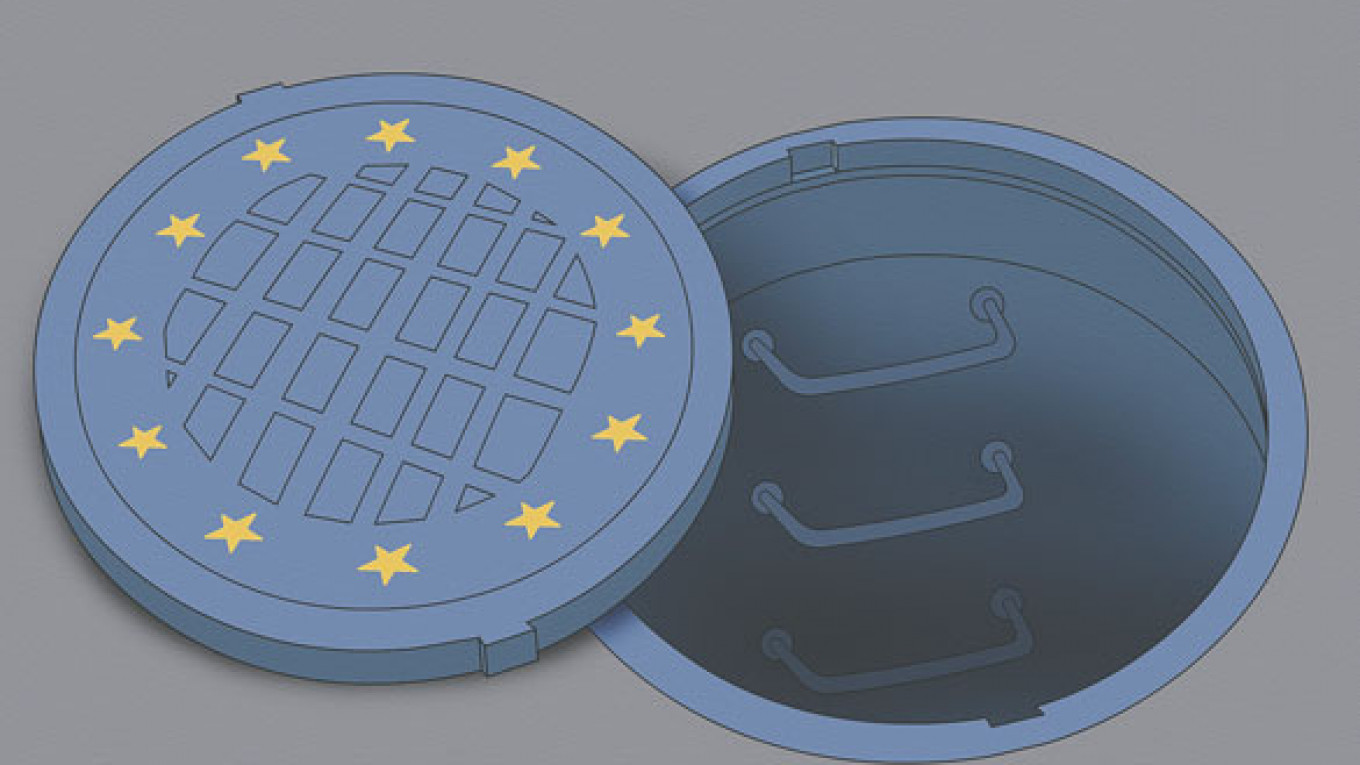The protests in Ukraine have been a powerful inspiration for European politicians, many of whom have flown to Kiev to address the jubilant crowds. The demonstrations quickly turned into an attempt to stage another "color revolution" and overthrow Ukrainian President Viktor Yanukovych.
The protests have come to symbolize Europe's political weakness, not its strength. After all, the European Union lost control of its strongly anti-Russian Eastern Partnership program when it handed the reigns over to irresponsible politicians from the Baltic states.
Second, the Euromaidan protests demonstrated the EU's economic weakness. The EU was unable to make its Association Agreement attractive enough for Ukraine, and when Kiev requested financial compensation to make up for the billions of losses the agreement would have entailed, Brussels could not come up with the necessary funds.
Third, Ukraine's political turmoil has definitively exposed the moral weakness of Europe. For many years, the EU held influence over Eastern Europe and Eurasian states by virtue of its use of "soft power" and its moral authority. Just the word "European" signified a high level of development and responsibility thanks to its rule of law, democratic institutions, excellent education and developed social welfare system. All of that remains, but the EU's policy toward Ukraine has cast doubt on its claim of moral leadership.
The problem started with the EU making protracted arguments as to how the Association Agreement was beneficial to Ukraine. And when Yanukovych refused to sign it, Europe, along with the U.S., became hysterical, making countless allegations that Russia was exerting undue pressure on Ukraine when, in fact, Moscow behaved with the utmost restraint.
In reality, it was the EU that blatantly interfered in Ukraine's internal affairs. Politicians from EU member countries threatened Kiev with sanctions for not signing the agreement, although it is the sovereign right of the Ukrainian president to make that decision. What's more, EU and U.S. politicians took part in the anti-government rallies, lending support to angry crowds from the stage. This was outrageous behavior and a gross violation of established diplomatic protocol.
EU politicians and media urged Ukrainian protesters not to leave Kiev's central square and the government to concede to the opposition's demands. The EU closed its eyes when the opposition broke the law by seizing buildings, blocking main streets and squares, storming government buildings and systematically using force against the police with well-trained fighters. I am deeply concerned that the West's desire to take revenge against President Vladimir Putin could lead Ukraine into a Syria-style civil war.
The neo-fascist Svoboda Party — which considers itself the successor to the Ukrainian Insurgent Army that collaborated with the Nazis and the SS division of Galacia — is gaining more influence in the protests. Why did EU politicians warmly embrace the Svoboda Party's members and their "Führer," Oleh Tyahnybok?
Much of the Western media refer to Svoboda members as "nationalists" or, at the most, "ultra-nationalists." These shameful euphemisms minimize the party's open fascism. Their original name, the Social Nationalist Party, is an obvious reworking of Adolf Hitler's National Socialist, or Nazi, party.
Europe's failure in Ukraine reflects the EU's inability to develop a realistic policy toward the former Soviet republics. The Russian authorities are trying to partner with the EU, but they must also oppose any attempts by the EU to create a sphere of influence on Russia's western borders where it would incite even more Russophobia.
The EU's credibility in Russia suffered setbacks following the 2008 Russia-Georgia war and the military incursion in Libya and, more recently, the information war it has initiated by unfairly labeling Russia "homophobic." Fraternizing with Ukrainian neo-fascists will only further undermine the EU's credibility among Russians.
The growing rift between the EU countries of Western and Central Europe, and the Eastern European countries of Russia, Ukraine and Belarus is a vivid example of the weakness of Greater Europe and its inability to come to terms with itself. It remains unclear what consequences will result from Europe's moral decline in the eyes of Russian society. It would be a pity if Russians turned their backs on the European political and social model. But if European politicians want to win back the respect of Russians, they will have to take serious steps to restore their moral authority.
Russia, Ukraine and the EU share a common goal of building a Greater Europe through cooperation and consensus, and not through imperial hubris. Russia would like to build that type of Greater Europe in partnership with the EU and not fight over Ukraine.
Sergei Markov is vice rector of Plekhanov Economic University in Moscow.
A Message from The Moscow Times:
Dear readers,
We are facing unprecedented challenges. Russia's Prosecutor General's Office has designated The Moscow Times as an "undesirable" organization, criminalizing our work and putting our staff at risk of prosecution. This follows our earlier unjust labeling as a "foreign agent."
These actions are direct attempts to silence independent journalism in Russia. The authorities claim our work "discredits the decisions of the Russian leadership." We see things differently: we strive to provide accurate, unbiased reporting on Russia.
We, the journalists of The Moscow Times, refuse to be silenced. But to continue our work, we need your help.
Your support, no matter how small, makes a world of difference. If you can, please support us monthly starting from just $2. It's quick to set up, and every contribution makes a significant impact.
By supporting The Moscow Times, you're defending open, independent journalism in the face of repression. Thank you for standing with us.
Remind me later.






